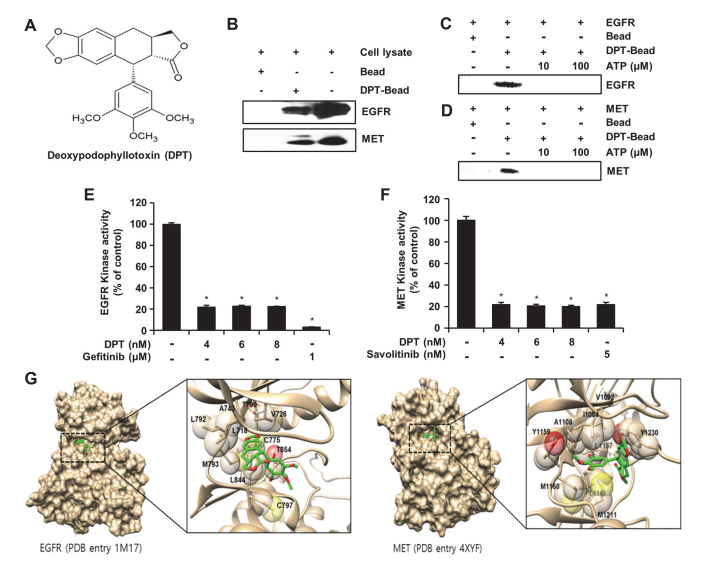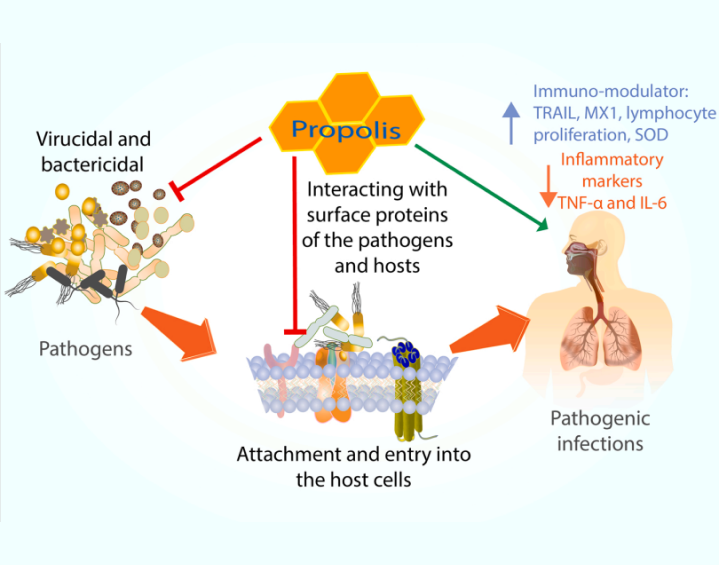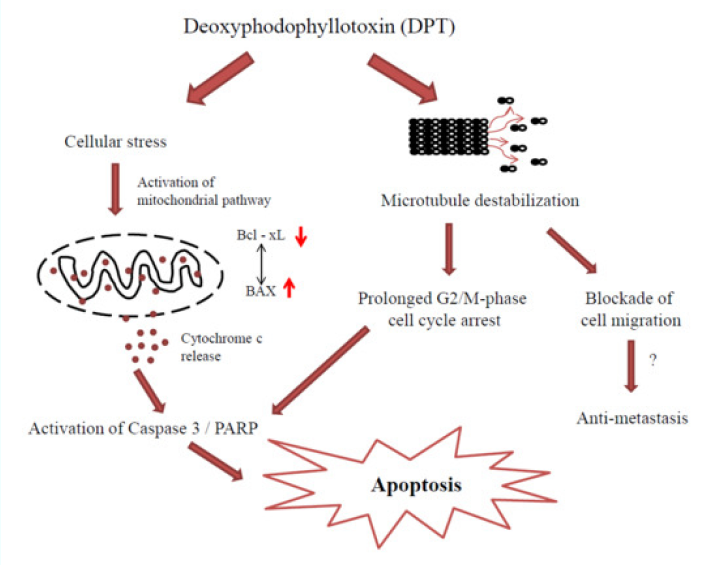Deoxypodophyllotoxin Inhibits Cell Growth and Induces Apoptosis by Blocking EGFR and MET in Gefitinib-Resistant Non-Small Cell Lung Cancer
08 Jan 2024 . 16:32

As one of the major types of lung cancer, non-small cell lung cancer (NSCLC) accounts for the majority of cancer-related deaths worldwide. Treatments for NSCLC includes surgery, chemotherapy, and targeted therapy. Among the targeted therapies, resistance to inhibitors of the epidermal growth factor receptor (EGFR) is common and remains a problem to be solved. MET (hepatocyte growth factor receptor) amplification is one of the major causes of EGFR-tyrosine kinase inhibitor (TKI) resistance. Therefore, there exists a need to find new and more efficacious therapies. Deoxypodophyllotoxin (DPT) extracted from Anthriscus sylvestris roots exhibits various pharmacological activities including anti-inflammation and anti-cancer effects. In this study we sought to determine the anti-cancer effects of DPT on HCC827GR cells, which are resistant to gefitinib (EGFR-TKI) due to regulation of EGFR and MET and their related signaling pathways. To identify the direct binding of DPT to EGFR and MET, we performed pull-down, ATP-binding, and kinase assays. DPT exhibited competitive binding with ATP against the network kinases EGFR and MET and reduced their activities. Also, DPT suppressed the expression of p-EGFR and p-MET as well as their downstreat proteins p-ErbB3, p-AKT, and p-ERK. The treatment of HCC827GR cells with DPT induced high ROS generation that led to endoplasmic-reticulum stress. Accordingly, loss of mitochondrial membrane potential and apoptosis by multi-caspase activation were observed. In conclusion, these results demonstrate the apoptotic effects of DPT on HCC827GR cells and signify the potential of DPT to serve as an adjuvant anti-cancer drug by simultaneously inhibiting EGFR and MET.
Artikel Lainnya

The Potential Use of Propolis as a Primary or an Adjunctive Therapy in Respiratory Tract-Related Diseases and Disorders A Systematic Scoping Review
Propolis is a resinous beehive product that is collected by the bees from plant resin and exudates, to protect and maintain hive homeostasis....

Deoxypodophyllotoxin Exerts Anti-Cancer Effects on Colorectal Cancer Cells Through Induction of Apoptosis and Suppression of Tumorigenesis
Deoxypodophyllotoxin (DPT) is a cyclolignan compound that exerts anti-cancer effects against various types of cancers. DPT induces apoptosis ...